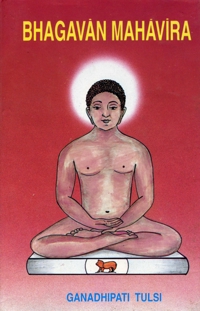 | Chapter 4 | Kaivalya (Omniscience) And The Bhagavan's Sermons |


widespread prevalence of rites and rituals had made the people extrovert even in matters of ethical values.
In order to bring about a revolutionary change, Bhagavan Mahavira asked the people to give importance to inwardness.
It was a common belief among the people that one became
- a Sramana by simply shaving the head,
- a Brahamana by merely repeating the sound of Omkara,
- a muni by merely living in the forests and a tapasvi (hermit) by putting on clothes made of the barks of trees.
Bhagavan Mahavira did not challenge the existence of the institutions of the Sramanas, Brahamanas, munis and tapasvis.
He, however, did not accept their norms.
He insisted on their recognition through their internal qualities.
He maintained that one could not become a Sramana simply by shaving his head, and that one did not become a Brahmana simply by repeating the sound of Omkara.
Similarly, in his view, nobody became a muni simply by living in the forest nor could one become a tapasvi simply by putting on cloth made of the bark of trees.
He insisted on the practice of equanimity, celibacy, knowledge and penance.
A Sramana must practise samata - equanimity, a Brahmana brahmacharya - celibacy, a muni must seek after knowledge (mona) and a tapasvi must observe austerities.
 Acharya Tulsi
Acharya Tulsi

